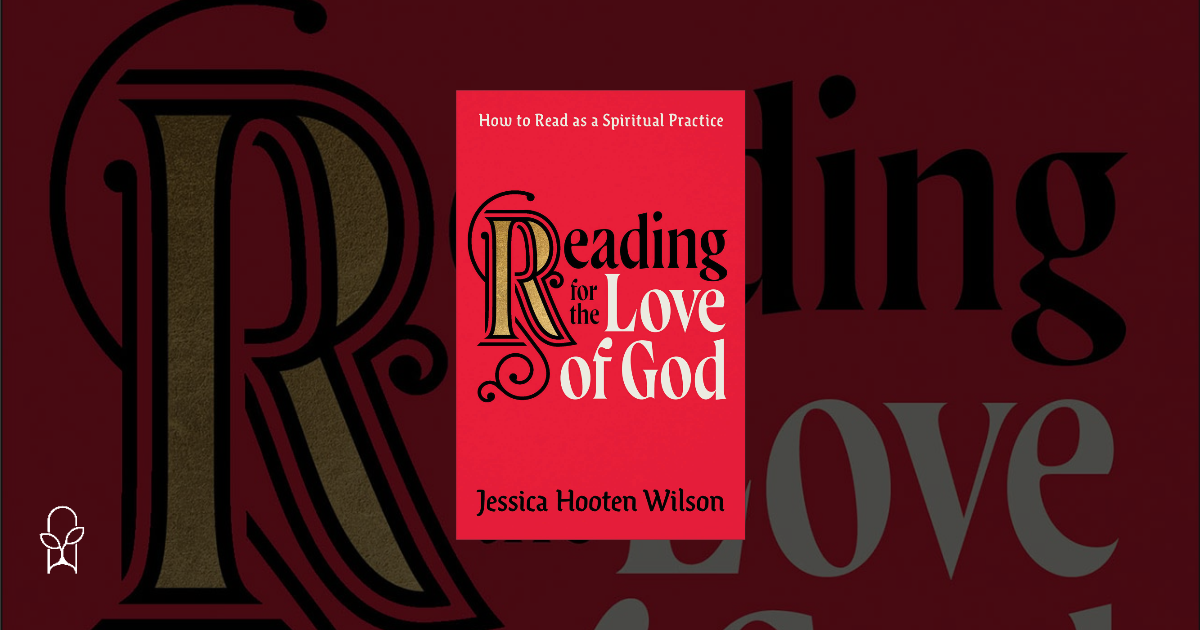
Also by this author: The Scandal of Holiness: Renewing Your Imagination in the Company of Literary Saints, The Liberating Arts: Why We Need Liberal Arts Education
Published by Brazos Press on March 28, 2023
Genres: Academic, Non-Fiction, Christian Life
Buy on Amazon
Goodreads

What if we viewed reading as not just a personal hobby or a pleasurable indulgence but a spiritual practice that deepens our faith?
In Reading for the Love of God, award-winning author Jessica Hooten Wilson does just that--and then shows readers how to reap the spiritual benefits of reading. She argues that the simple act of reading can help us learn to pray well, love our neighbor, be contemplative, practice humility, and disentangle ourselves from contemporary idols.
Accessible and engaging, this guide outlines several ways Christian thinkers--including Augustine, Julian of Norwich, Frederick Douglass, and Dorothy L. Sayers--approached the act of reading. It also includes useful special features such as suggested reading lists, guided practices to approaching texts, and tips for meditating on specific texts or Bible passages. By learning to read for the love of God, readers will discover not only a renewed love of reading but also a new, vital spiritual practice to deepen their walk with God.
I really wanted to like this book. I read books every day. That plural, “books,” is no exaggeration. I’m always in the middle of a physical book (for my dedicated reading time), an e-book (for the between moments of life), and an audiobook (for bedtime). I am continually awash in stories and run a website called Life is Story. And I’m a pastor. Reading for the Love of God is something that hits all of my personal and professional interests.
And yet. I just couldn’t get into it. To be sure, Wilson drops some good lines through the book. But occasionally I felt like she was arguing against points that aren’t really being made. For instance, her second chapter is “Why Read Anything but the Bible.” I’m sure there are a few who would legitimately ask this, but the majority of people—say, like the ones actively reading this book which is not the Bible—need convincing to read a book not the Bible? And Wilson’s answer feels woefully incomplete. “Jesus taught in stories, so we can learn from story” is very true (life is story, after all), but the chapter would be better titled “Why Read Classic Literature and How it is Different from the Bible.”
Reading for the Love of God also felt like two books in one, as half the book is chapters entitled “bookmarks” overviewing “How to Read Like _______” with the blanks belonging to St. Augustine, Julian of Norwich, Frederick Douglass, and Dorothy Sayers. These are fine chapters, though they don’t quite comport with the tone of the book. It felt like Wilson had two partial manuscripts and pushed them together to get one book-length work. It makes for an uneven reading experience.
My main problem with Reading for the Love of God is the way it academizes reading and reduces it to a theological exercise. She writes “If we are to read spiritually, we must begin by loving book in a similar fashion to loving our neighbors, seeing the book as an opportunity to practice charity.” However, earlier in the chapter, she writes that we “misuse literature when we only use it or when we use it for an end other than the enjoyment of God.” Is it charitable to say that literature is misused when its purpose is some end other than the enjoyment of God? Must all fiction contain an exploration of moral truths? Or can there simply be entertainment? I’m a pastor and I would be hard-pressed to say that everything we do must lead to our enjoyment of God. Sometimes we can simply enjoy his creation…and the stories his creations have created.
Wilson’s tone throughout the book is academic and borderline arrogant. At the beginning of one chapter, she tells a story about humiliating a student who challenged her in a class. Wilson had written “God is useless” on the board and when a student protested, Wilson lectured them on how “using God is idolatry” and God cannot be used, only enjoyed. It’s a smarmy “gotcha” moment that tells me I would never want to take a class from Wilson—and Wilson sets it up as something positive. As someone who makes their living with words, Wilson certainly understands that the connotational difference between “God is useless” and “God is to be used” is drastic. This was honestly such a turnoff for me that it affected my desire to continue reading the book and I’m quite disappointed in Brazos for not dropping that anecdote in the editing process. In a different chapter, she criticizes Christian fiction but then says this criticism comes despite her “limited experience with evangelical fiction.” Whether her criticisms are valid or not (they certainly can be), she certainly doesn’t seem like she’s taking the opportunity to practice charity or even be informed in the genre of literature she is critiquing.
I had high hopes for Reading for the Love of God. It did not live up to those hopes. Karen Swallow Prior’s On Reading Well is a much more readable, practical, accessible, particular, and humble work on the same topic that I would recommend instead.
